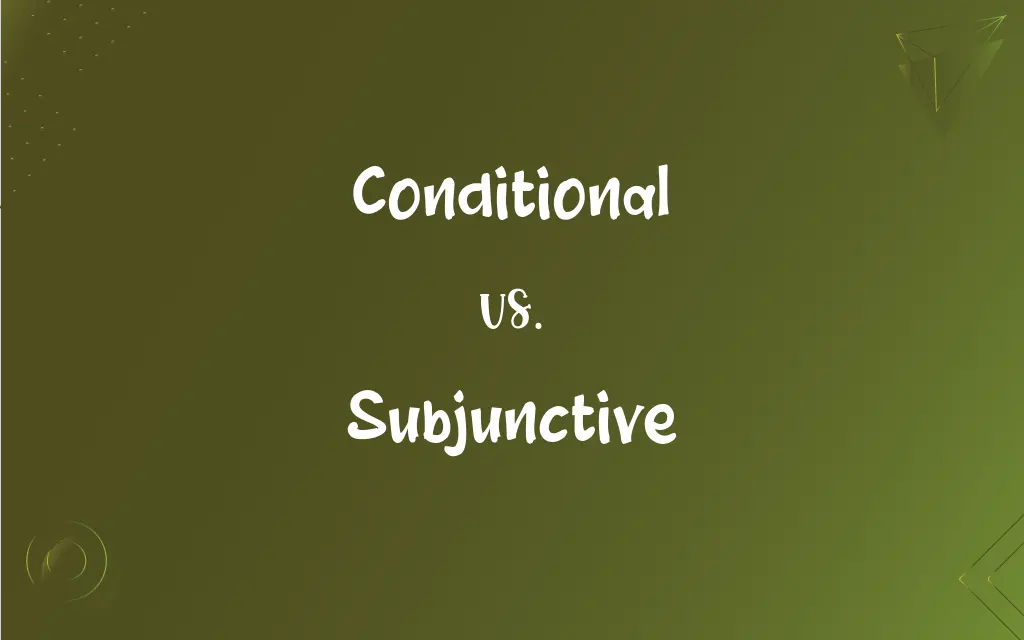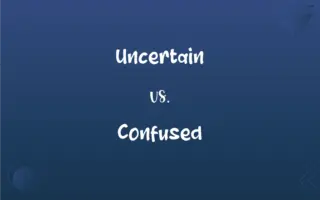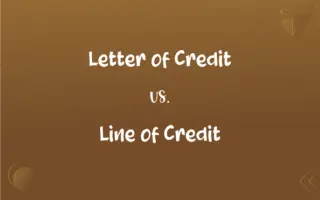Conditional vs. Subjunctive: What's the Difference?
Edited by Aimie Carlson || By Harlon Moss || Published on December 5, 2023
The conditional mood expresses actions dependent on a condition, while the subjunctive mood expresses wishes, hypotheticals, or uncertainties.

Key Differences
The conditional mood in grammar is used to discuss events that are not guaranteed to happen, being dependent on certain conditions. The subjunctive mood, however, is used to express wishes, suggestions, or situations that are hypothetical or not necessarily true.
Conditional sentences often use 'if' to introduce a condition, followed by the result that depends on that condition. In contrast, the subjunctive is typically used in clauses following verbs like 'wish', 'suggest', or 'demand', and in 'that' clauses after certain adjectives.
In English, the conditional is marked by the use of would, could, or should, showing a potential outcome based on a condition. The subjunctive is less obvious, often resembling the past tense or using 'were' instead of 'was', particularly in unreal or hypothetical situations.
Conditionals are crucial in everyday language when discussing possibilities or making predictions. The subjunctive, while less common in casual speech, is important for conveying desires, demands, or unreal situations.
Examples of conditional usage include discussing future possibilities or hypothetical scenarios. Subjunctive examples include expressing wishes or unreal situations, such as in the phrase, "If I were you..."
ADVERTISEMENT
Comparison Chart
Primary Use
Discussing possible events or outcomes based on conditions
Expressing wishes, suggestions, or hypotheticals
Typical Structure
'If' clauses followed by potential results
Clauses following verbs like 'wish', 'suggest', or 'demand'
Markers
Would, could, should
Use of 'were' instead of 'was', past tense-like forms
Frequency in Speech
Common in everyday language
Less common, more formal or literary
Example Sentences
"If it rains, we will cancel the trip."
"I suggest that he be told the news."
ADVERTISEMENT
Conditional and Subjunctive Definitions
Conditional
Possible Event.
If I go to the store, I will buy milk.
Subjunctive
Suggestion or Demand.
I suggest that he be promoted.
Conditional
Future Possibility.
If it snows, the school might close.
Subjunctive
Formal Request.
It is important that he arrive on time.
Conditional
Unlikely Situation.
If I were a millionaire, I would buy a yacht.
Subjunctive
Unreal Condition.
Were I in charge, I would change the policy.
Conditional
Hypothetical Scenario.
She would travel more if she had more time.
Subjunctive
Hypothetical Situation.
If she were here, she would understand.
Conditional
Advice.
You should see a doctor if you feel worse.
Subjunctive
Of, relating to, or being a mood of a verb used in some languages for contingent or hypothetical action, action viewed subjectively, or grammatically subordinate statements.
Conditional
Imposing, depending on, or containing a condition.
Subjunctive
The subjunctive mood.
Conditional
(Grammar) Stating, containing, or implying a condition.
Subjunctive
A subjunctive construction. See Usage Note at if.
Subjunctive
Inflected to indicate that an act or state of being is possible, contingent or hypothetical, and not a fact.
Subjunctive
Ellipsis of subjunctive mood
Subjunctive
(countable) A form in the subjunctive mood.
Subjunctive
Subjoined or added to something before said or written.
Subjunctive
The subjunctive mood; also, a verb in the subjunctive mood.
Subjunctive
A mood that represent an act or state (not as a fact but) as contingent or possible
Subjunctive
Relating to a mood of verbs;
Subjunctive verb endings
Subjunctive
Wish or Desire.
I wish I were taller.
FAQs
Can conditionals express advice?
Yes, they're often used for giving advice based on conditions.
Is the conditional always realistic?
No, it can describe unrealistic or hypothetical situations.
How is the subjunctive formed?
Often with verbs like 'wish' or 'suggest', and sometimes using 'were' instead of 'was'.
Is the subjunctive common in English?
It's less common and more formal or literary.
Is the subjunctive mood complex?
It can be subtler and less straightforward than the conditional.
Are conditionals used in everyday speech?
Yes, they're common in daily conversation.
Can the subjunctive be used for demands?
Yes, particularly in formal or polite requests.
What is the conditional mood used for?
For discussing events that might happen under certain conditions.
How is the conditional formed?
Often with 'if' plus 'would', 'could', or 'should'.
Is the subjunctive mood emotional?
It can convey strong emotions like wishes or demands.
Does the subjunctive have different forms?
It has a few forms, but they're often similar to past tense.
Are conditionals only for future events?
No, they can discuss present or past hypothetical situations too.
What does the subjunctive express?
Wishes, demands, suggestions, or hypothetical situations.
How do conditionals affect meaning?
They introduce a sense of uncertainty or dependency on conditions.
Are there different types of conditionals?
Yes, including zero, first, second, and third conditionals.
Is the subjunctive outdated?
Not outdated, but less common in casual modern English.
Do conditionals always use 'if'?
Mostly, but not always. They can also use 'unless', 'as long as', etc.
Can subjunctive and conditional be used together?
Yes, they can appear in the same sentence but serve different purposes.
Is the subjunctive mood unique to English?
No, many languages have a subjunctive mood, often more prominently.
Can conditional sentences be negative?
Yes, they can express negative possibilities.
About Author
Written by
Harlon MossHarlon is a seasoned quality moderator and accomplished content writer for Difference Wiki. An alumnus of the prestigious University of California, he earned his degree in Computer Science. Leveraging his academic background, Harlon brings a meticulous and informed perspective to his work, ensuring content accuracy and excellence.
Edited by
Aimie CarlsonAimie Carlson, holding a master's degree in English literature, is a fervent English language enthusiast. She lends her writing talents to Difference Wiki, a prominent website that specializes in comparisons, offering readers insightful analyses that both captivate and inform.







































































